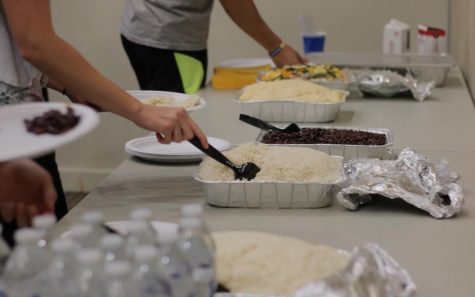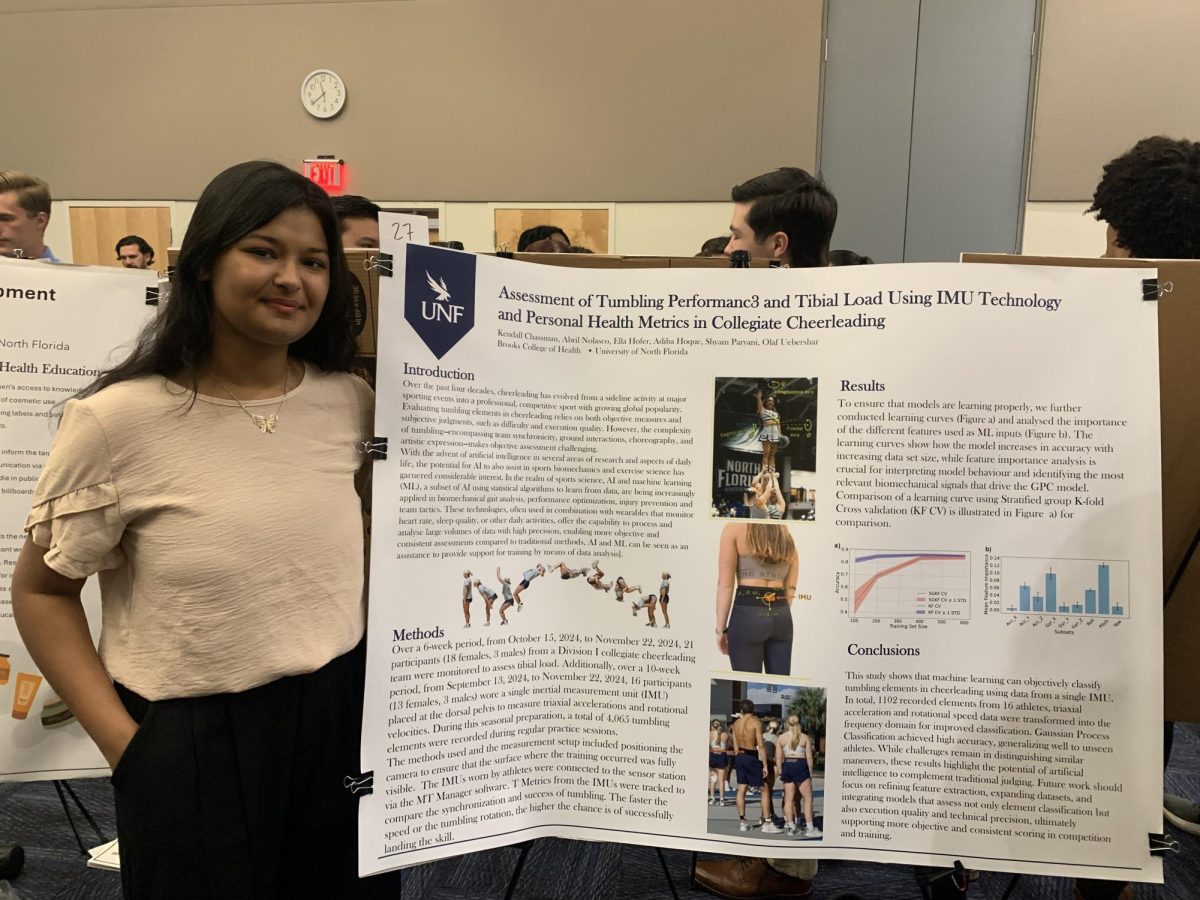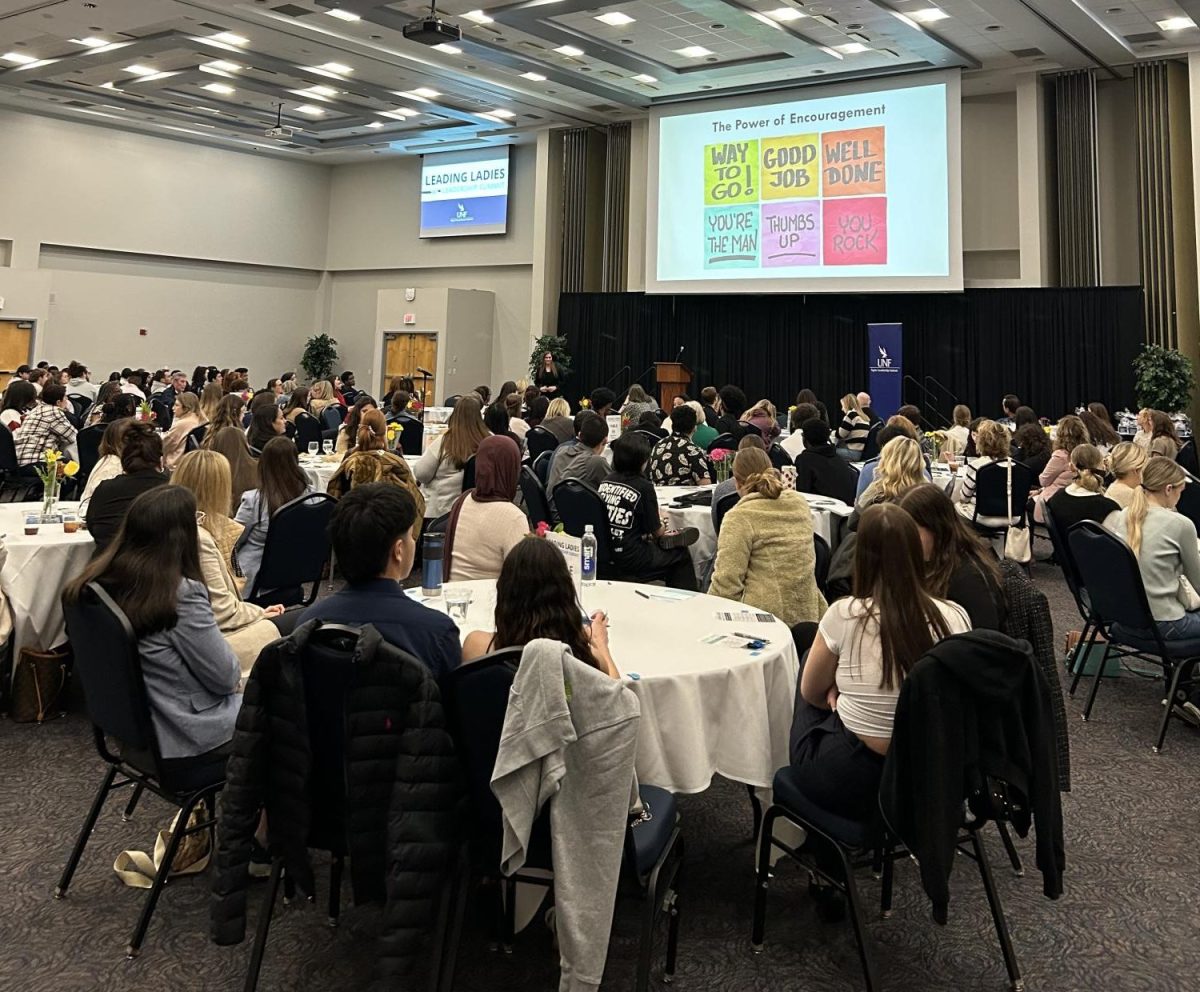The Student Powered Hunger Relief at UNF hosted their second annual Food Fighters Hunger Dinner on Tuesday, Oct. 2 to bring awareness to food insecurity at UNF and in the Jacksonville community. Food Fighters is a project developed by the Environmental Leadership Program that works with the Northeast Florida AIDS Network and Sulzbacher center. With the help of the Osprey Cafe, they are able to provide nutritious meals to those in need and reduce food waste.
[embedyt] https://www.youtube.com/watch?v=as0LNUMVq_0[/embedyt]
Ecology Major Molly O’Brien, who is an Environmental Leadership Program project leader, says the Northeast Florida AIDS Network serves an important role in serving those who have illnesses like AIDS because they are often at risk of food insecurity due to expensive medication and doctors appointments.
Why is this important?
According to the Food Aid Foundation, hunger affects 795 million people worldwide and 20 percent of people living in Duval county experience food insecurity. This event showed how each income level is affected by economic, environmental and health issues that could dramatically impact food security within a household. In other words, environmental disasters, illnesses and job changes can determine how much food you or your family will receive.
At the dinner, the audience participated in an activity in order to show the gap between income levels and food security. People sitting in the “high-income area” of the room would receive a highly nutritious meal, “middle-income people” received rice and beans and “low-income” people would be given just rice and water.

Lauri Wright, a Nutrition and Dietetics professor at UNF, says that hunger is the number one health risk in the world.
“When you think about food insecurity you often think about the city but it actually occurs more in rural areas because there isn’t enough access to food pantries and supermarkets,” she said.
She also says that college students and military families are emerging groups at risk of food insecurity and that the consequences of inadequate food can lead to making unhealthy choices. Binge eating and purging, anxiety and depression and obesity are factors that result from food insecurity.
“If you have five dollars and you need to feed your family are you going to spend all that money on a gallon of milk, or are you going to spend it on a 99 cent, 2 liter of fruit punch and still have enough to spend on ramen noodles or spaghetti O’s?” she stressed.
Not being able to afford healthy options can lead to detrimental health issues like diabetes and high blood pressure. Such problems can also add to the economic burden experienced by individuals and families around the world.
So, what are some ways to get involved?
Wright says that food drives are ways to donate healthy options to the community and that educating people can help them be aware of what hunger looks like. She also says that dedicating a few hours to support programs through service can a make a big difference within the community.
“Think about being a mom or a dad and trying to figure out how you’re going to have enough food to feed your child,” she explained. “Can you imagine putting your child to bed hungry? That’s the reality of so many people.”
—
For more information or news tips, or if you see an error in this story or have any compliments or concerns, contact editor@unfspinnaker.com.

















cheap essay writing service | Nov 9, 2018 at 1:22 am
good